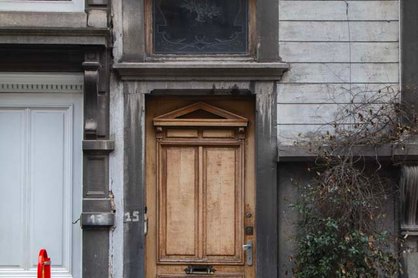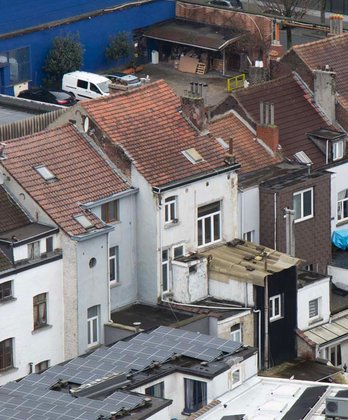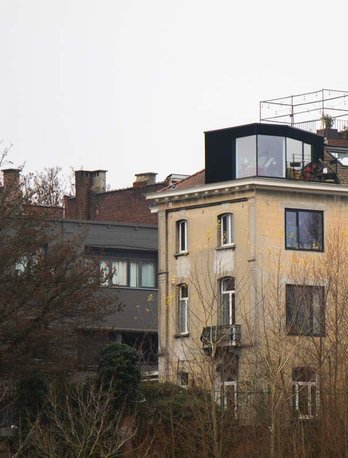
Antoine HORENBEEK
Contents
1. Provide a valid lease contract
2. Register the lease within the legal deadlines
3. Carry out a detailed inventory
4. Provide a compliant PEB/CPE certificate
5. Ensure healthy and decent housing
6. Carry out repairs at owner's expense
7. Ensuring peaceful enjoyment of the home
8. Respect the rules on rent increases
9. Informing the tenant of charges and costs relating to the property
10. Provide the tenant with the necessary documents
11. Respect the rules for lease termination
12. Do not interfere with the tenant's privacy
13. Insuring your home as an owner
14. Comply with safety and habitability standards
15. Maintain common building equipment
16. Do not abuse your right of access to your home
17. Assume obligations in the event of sale of the leased property
Striking a balance between landlord and tenant can be a source of tension. In Belgium, the law imposes clear obligations on landlords. This article explains your responsibilities as a landlord to avoid conflicts.
The landlord must provide a written lease contract. This document must comply with the legal rules in force in the region concerned, such as Wallonia or Brussels. It must mention key elements: the rent, the duration of the lease and the obligations of both parties.
Signing the rental agreement sets the terms and conditions between tenant and landlord. This document protects both parties in the event of disagreement. To avoid any misunderstandings, it is advisable to send the contract by registered letter with acknowledgement of receipt.
Lease registration is compulsory in Belgium. It must be done within two months of signing the contract.
This process, which is free of charge for leases of principal residences, gives the document a date certain.
This protects both tenant and landlord in the event of a dispute.
Failure to meet this deadline may result in sanctions. For example, the landlord could lose certain rights, such as eviction in the event of non-payment of rent.
To avoid this, simply send a copy of the contract to the relevant registry office or log on to the tax authorities' online portal.

Antoine HORENBEEK
An inventory of fixtures is mandatory. It protects both landlord and tenant in the event of a dispute.
The landlord must provide the tenant with a valid PEB/CPE certificate. This document shows the energy performance of the property. In Wallonia and Flanders, this is mandatory even before signing the lease.
Make sure the certificate is up to date. If improvement work (such as insulation or window replacement) changes the energy performance, a new certificate is required.
This document guarantees that the tenant is aware of the energy costs associated with the property.
Housing must be safe, clean and in good condition. All landlords are required by law to meet minimum standards of habitability. These standards concern electricity, heating, ventilation and drinking water.
For example, a dwelling without working electrical outlets or with broken windows may be considered unsanitary. Regular building maintenance is essential to avoid problems such as damp or leaks.
A landlord must also guarantee that the home is suitable for decent living. This includes sufficient space for the occupants and good natural lighting. When a serious defect is reported by the tenant, the landlord must act quickly to make the necessary repairs.
Please note: offering for rent a property affected by a planning violation, such as work carried out without planning permission or unauthorized alterations, may constitute a breach of legal obligations. This may affect the validity of the lease, or expose the landlord to penalties.
In the event of non-compliance, the tenant can appeal to the Justice of the Peace to force the landlord to meet his obligations, or even reduce the rent. Decent, healthy housing protects the tenant's rights and ensures a better relationship between the parties.
Landlords have important responsibilities when it comes to repairs. These tasks ensure the good condition of the rented property and protect the tenant.
A landlord must take these points into account to maintain the tenant's comfort and safety without unnecessary delay!
The tenant has the right to peaceful occupation of the property. The owner may not disturb or impose frequent visits without good reason. Any unjustified intrusion violates the right to peaceful enjoyment.
Non-emergency work must be planned in advance. The landlord must inform and obtain the tenant's agreement before gaining access to the property. Respecting privacy builds trust and avoids legal disputes.
A landlord cannot increase the rent as he wishes. The increase must follow the rules laid down by the civil code or regional legislation. In Belgium, it is often linked to the health index.
This modification must be in writing and sent to the tenant by registered mail letter with acknowledgement of receipt.
Rent increases are generally possible once a year, on the anniversary date of the lease. Some regions, such as Wallonia, impose specific criteria.
If these conditions are not met, the tenant can refuse to pay the increase. The landlord must also provide all the necessary supporting documents to prove that the request is in order.

The landlord must clearly explain charges and fees to the tenant. This may include the payment of common charges, such as maintenance of common areas or the elevator.
Water, gas and electricity costs must also be specified.
It is important to detail these costs in the lease contract. The tenant must be aware of the rules for adjusting charges. If the amount changes, the landlord must inform the tenant promptly.
Landlords must provide tenants with certain documents to ensure a transparent tenancy. These documents are essential and often mandatory.
Respecting the legal rules is essential when terminating a lease. First and foremost, notice must be given to the tenant. There is a minimum notice period, often 3 or 6 months, depending on the length and type of lease.
For example, a lease for a principal residence requires 3 months' notice, unless otherwise stipulated in the contract.
In the event of early termination, an indemnity may be payable by the landlord. This indemnity often corresponds to several months' rent. If the property is sold or used for personal purposes, these reasons must be justified.
The landlord must also duly inform the tenant. Failure to do so may result in legal action before the Justice of the Peace.
The landlord does not have the right to enter the dwelling without the tenant's consent. He must respect the tenant's privacy. All visits must be justified and announced in advance.
It's essential to give clear notice of any intervention or inspection. The dwelling becomes the tenant's private property as soon as the lease is signed, and this includes all rented rooms and spaces.
As a homeowner, you are obliged to take out home insurance. This insurance protects against damage such as fire, flood or theft. It also covers civil liability in the event of damage caused to third parties.
Insurance must include the rental value of the property. In the event of a claim, this guarantees compensation for any losses. Some lease contracts even require the landlord to provide proof of insurance to the tenant.
The owner must guarantee that the property complies with current safety standards. Electrical installations must be safe. Heating systems must function correctly, without risk to the tenant.
Windows, doors and staircases must be in good condition to avoid accidents. Sufficient ventilation and natural light are also essential for a healthy home.
This requires regular checks and prompt repairs.
Decent housing must meet strict habitability criteria. Landlords must comply with the decency requirements laid down in Belgian law. Drinking water must be available in sufficient quantities.
Sanitary facilities must be functional.
The rented premises must be free from damp or unhealthy conditions. If these standards are not met, the tenant may seek legal recourse or assistance in the event of a dispute.
On a similar subject:
Landlords: standards for renting an apartment in Belgium

A landlord has responsibilities towards the building's common areas. He or she must guarantee their good condition for the comfort of all tenants.
The landlord may visit the property for specific reasons, such as renovations or a sale. Such visits must respect the tenant's privacy. They must be scheduled in advance at an agreed time.
Abuse, such as too-frequent or unannounced visits, can cause problems. The law protects tenants against such intrusions. Landlords must therefore act with respect, and limit their visits to what is strictly necessary.
In the event of sale of the rented property, the lease remains in force. The buyer must respect the terms of the current lease. The tenant retains all his rights, such as continuing to pay rent to the new owner.
The seller must inform the buyer of the obligations associated with the lease. It is also important to ensure that the agreement is registered before the sale. This protects both parties and ensures transparency.
In Belgium, these rules follow the Judicial Code to protect the tenant.

The landlord must provide decent accommodation, comply with decency criteria, and carry out repairs at his own expense. He must also register the lease within the legal deadlines.
Yes, the maintenance of the main parts of the dwelling is the owner's responsibility. This includes major repairs and those due to normal wear and tear.
The tenant can request information or report the situation to the appropriate authorities. In the event of a dispute, he can assert his rights under the lease contract.
The landlord can terminate the lease by giving notice, depending on the type of contract (short-term lease or other). Conditions and deadlines vary according to the law.
The lease agreement must be in writing and registered. Other documents, such as information on the condition of the property, may be required to protect both parties.
This depends on the terms of the contract and the type of lease. In cases of force majeure or agreement between the parties, compensation may not be necessary.
Author : CORNIL Olivier
Contact UBEX today for a free consultation!
Don't let regulatory changes take you by surprise. Anticipate and act with UBEXyour partner in real estate regulation.
Contact Ubex
AddressesUbex
Avenue Louise 523 B1050 Brussels
Chaussée de Marche 482 B5101 Namur
Rue Bois Gotha 98 B4000 Liège
Rue de Bart Haut 6 B6790 Aubange
Beekstraat 6 B9030 Gent
Copyright © SIZE+ 2026. All rights reserved.